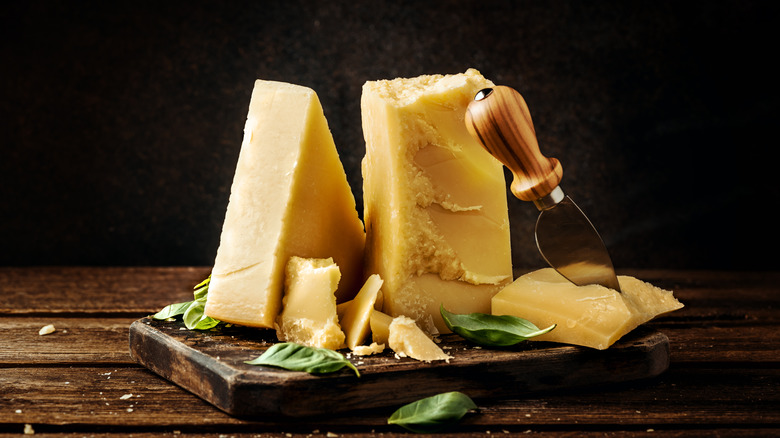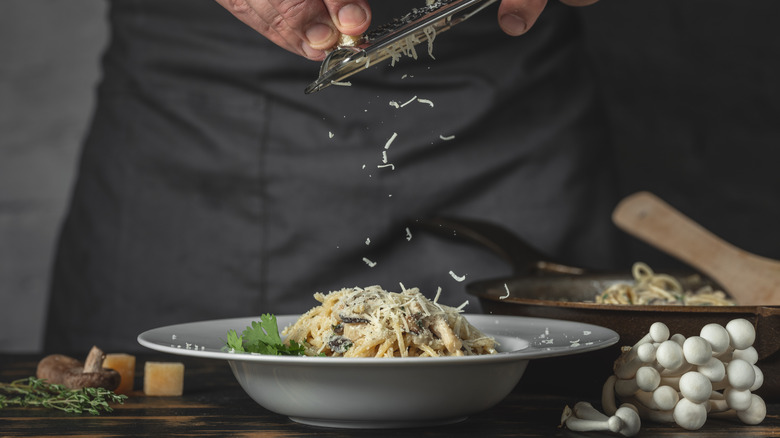Why You Should Think Twice About Getting Pre-Grated Parmesan Cheese
Buying a bag of pre-shredded cheese is so convenient. Any time you want cheese, you simply open the bag, sprinkle the cheesy goodness on hot food, throw the bag back in the refrigerator and call it a day. There's one less thing to wash — the notoriously difficult to clean cheese grater — and you don't have to bother transferring the cheese into a safe storage container. Choosing a pre-grated bag of Parmesan over a block of hard cheese then is a no-brainer. However, you might want to think twice about it.
One look at the ingredients listed on the back of bags of pre-grated cheeses like Parmesan will have you gunning for team cheese blocks. According to KCET, pre-shredded cheeses contain a lot of ingredients that aren't cheese: potato starch that acts as a thickener and keeps cheese strands from turning into a clump, natamycin that stops the cheese from molding, and cellulose, which is powdered wood pulp. When you sprinkle a heap of bagged Parmesan on your homemade pasta, it's very well likely that you're going to be eating a lot more than just cheese.
The real kicker comes from an FDA investigation into Castle Cheese Inc.'s pre-grated cheese a few years ago.
Pre-grated parmesan cheese with a lot more
Bloomberg reported that on a visit to Castle Cheese Inc.'s cheese factory, the FDA found evidence that the cheese manufacturer was using wood pulp as a filler. The manufacturer, which sold pre-grated Parmesan to popular retailers, was flagged for making its product with substitutes. According to the FDA's report, "no Parmesan cheese was used to manufacture" products sold to Target and Associated Wholesale Grocers Inc. Instead, a blend of Swiss cheese, mozzarella, white cheddar, and cellulose was labeled as Parmesan cheese.
According to Forbes, Parmesan, or Parmigiano-Reggiano, should be made with nothing except milk produced in Parma or Reggio regions of Italy, salt, and rennet. Anything on top is technically illegal. Bloomberg revealed that many cheese manufacturers, however, regularly add cellulose to shredded Parmesan. Although the addition of 2-4% of cellulose is considered safe, the outlet found that many popular manufacturers use a lot more. Jewel-Osco's 100% grated Parmesan cheese contains 8.8% cellulose, Walmart's Great Value version has 7.8%, and Kraft has 3.8%.
So the next time you're shopping for cheese, you might want to shell out a few extra bucks for a block of Parmesan cheese and grate it fresh at home. It might add another step in your cooking, but at least you won't be eating wood.

